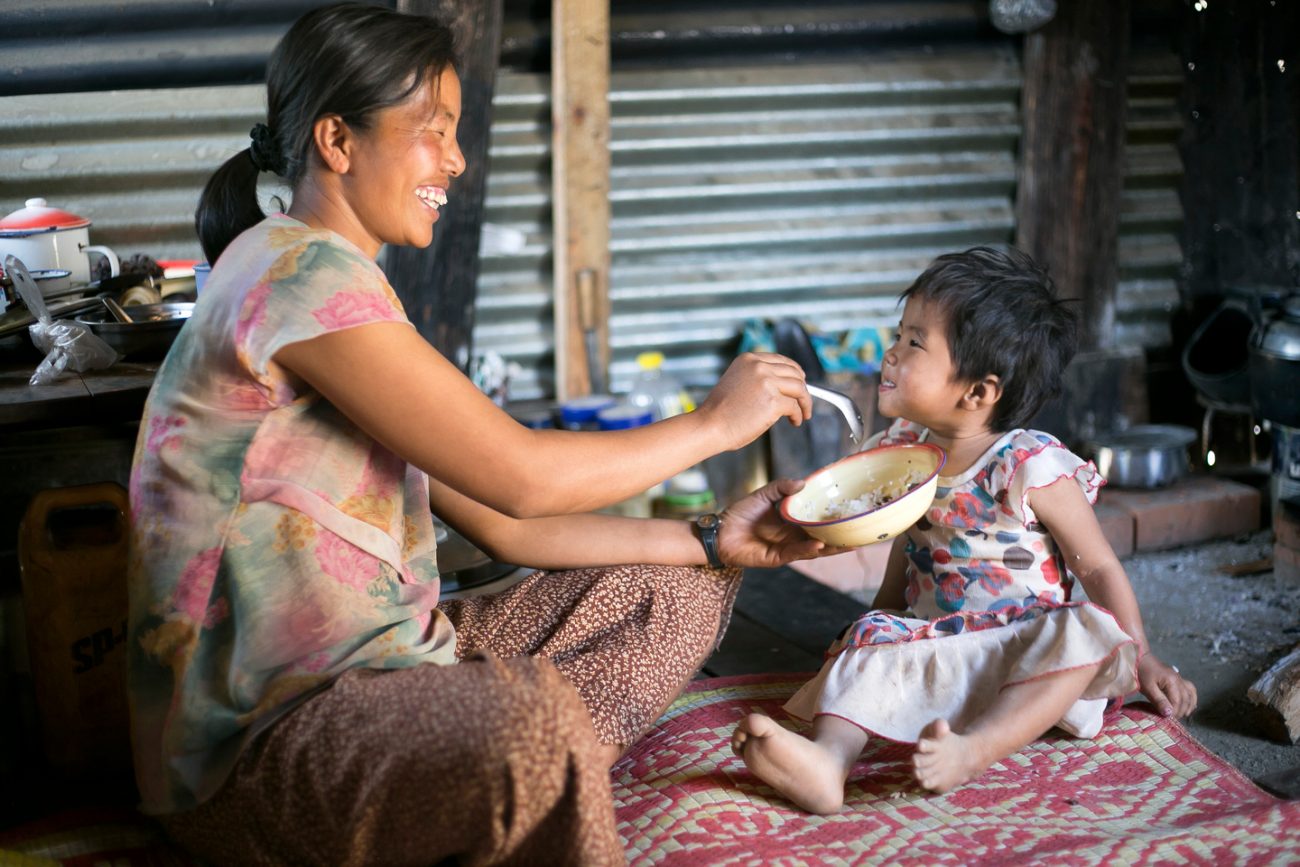Local Catholic Relief Services (CRS) groups are celebrating the recent passage of a bill that aims to “make a difference in a new generation of children,” according to archdiocesan CRS director Anne Ayella.
After a two-year advocacy campaign, the Global Child Thrive Act (GCTA) entered into U.S. law last week. Without requiring additional funding, the act makes early childhood development strategies – such as reading, singing and other age-appropriate learning activities — part of existing U.S. foreign aid programs.
The legislation was diligently supported by CRS, the official international humanitarian agency of the Catholic community in the U.S., as part of its “Lead the Way on Migration” and “Lead the Way on Hunger” campaigns. The U.S. Conference of Catholic Bishops (USCCB) and the Thrive Coalition, a collective of advocacy organizations for young children, also endorsed the bill.
[hotblock]
Research has shown that a child’s brain forms its critical neural networks and pathways between birth and age six. However, 43% of children under five (some 250 million) in low- and middle-income countries are hampered in their cognitive and emotional development through poverty, hunger and trauma. The lag is compounded for children with disabilities.
The impact has lifelong and widespread consequences, according to studies. Adults lacking proper care in their early years are more likely to drop out of school and to earn significantly less than their peers.
Collectively, that deficit traps families and communities in poverty, lowers gross domestic product, and reduces a nation’s tax revenue for health and education investments. Ultimately, the downward spiral can stir political and social instability as well as large-scale population displacements.
Early childhood interventions can break the cycle, said Ayella, noting such assistance has become more critical than ever due to the COVID-19 pandemic.

Anne Ayella, director of the archdiocesan Catholic Relief Services office.
“There is need on every continent, especially in areas experiencing continual wars and refugee crises,” she said. “And of course with COVID, things have become even more complicated.”
According to UNICEF, children from the poorest countries will suffer disproportionately from the pandemic’s long-term socioeconomic impact. The agency estimates that without mitigating policies, “the total number of children living in poor households globally could reach just over 725 million,” with close to two-thirds of them located in sub-Saharan Africa and South Asia.
Such poverty is “multidimensional,” said UNICEF, characterized by lack of access to education, health care, housing, nutrition, sanitation or water. The trend is “likely to worsen unless national governments and the international community step up to soften the blow,” the agency added.
Ayella said the GCTA was a testament to bipartisan collaboration. Introduced by Democratic Rep. Joaquin Castro of Texas, the bill was quickly cosponsored by Pennsylvania Republican Rep. Brian Fitzpatrick, whose district includes portions of Bucks and Montgomery Counties.
The local political momentum was due in part to the efforts of Larry Blankmeyer, a parishioner of St. Vincent de Paul in Richboro, and fellow Bucks County CRS volunteers, said Ayella.
For the past decade, the volunteers – along with Ayella and other area faithful – had been collaborating as an informal CRS advocacy group, cultivating support for policies to counter hunger and poverty.
After the Bucks County CRS team visited Rep. Fitzpatrick, “he was so interested right at the get-go” that he immediately signed onto the bill, said Ayella.
As the nation reels from Jan. 6’s violent protests at the U.S. Capitol, the GCTA serves as an example of successful political collaboration for a common good, said CRS leaders.
“By passing this bill into law, we’re saying to children everywhere, ‘You matter,’” said Bill O’Keefe, CRS’ executive vice president of mission, mobilization and advocacy. “We’re tremendously grateful to our supporters across the country — especially those in our CRS chapters — as well as to all the Congressional lawmakers who worked across the aisle to make this happen.”
Bipartisan teamwork “can be such a beautiful thing,” said Ayella. “People on both sides of the aisle really saw the value in this.”
Looking ahead, she said, advocates will need to “keep on top of the appropriations” made by lawmakers each year to fund the activities mandated by the GCTA.
Supporters can stay up to date on those outreaches by visiting CRS’s “Lead the Way” campaign website, she said.
Ultimately, said Ayella, the stipulations of the GCTA are part of “the major Gospel mandate” of providing sustenance to all.
“Jesus challenges us to feed the hungry and to break bread with those in need,” she said. “And food is one of the building blocks of humanity. If people know they have enough food to eat, it gives them the ability … (to become) a more whole person.”
PREVIOUS: Frontline workers, clients welcome COVID vaccine with ‘tears of joy’
NEXT: Police, priest bring warmth to cold streets



Share this story